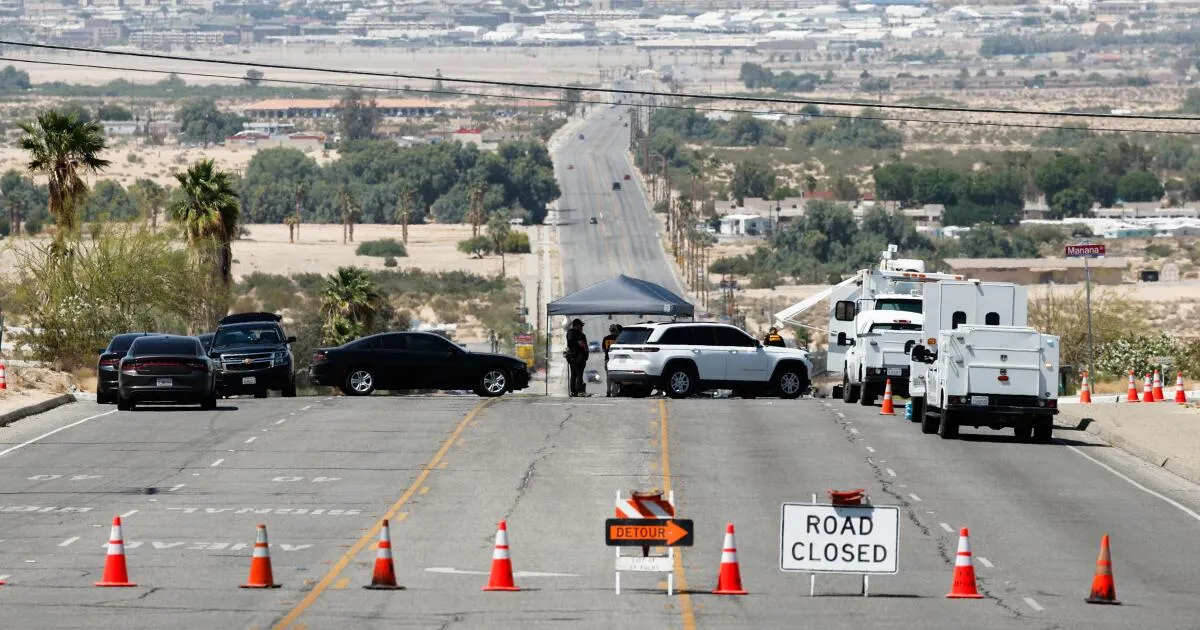
The FBI has tentatively identified the suspect responsible for the bombing of a fertility clinic in Palm Springs, which resulted in injuries to four individuals. The suspect, Guy Edward Bartkus, a 25-year-old with what authorities describe as “nihilistic ideations,” appears to have died in the explosion that occurred at the American Reproductive Centers on Saturday morning. According to FBI officials, this incident is being classified as an “act of intentional terrorism.”
FBI Assistant Director Akil Davis confirmed that Bartkus was likely the individual found near a 2010 silver Ford Fusion sedan close to the explosion site. Preliminary investigations suggest that the suspect might have aimed to livestream the attack, which has been characterized as potentially “the largest bombing scene that we’ve had in Southern California,” surpassing the 2018 bombing of a day spa in Aliso Viejo. Law enforcement sources revealed that a significant amount of explosives was used in the attack, which resulted in the destruction of Bartkus's remains, raising questions about whether he intended to survive the blast.
Investigators are exploring Bartkus's online presence, including social media accounts, a manifesto, and a YouTube channel that reportedly discussed explosives. A website associated with the bombing contained a manifesto advocating for “a war against pro-lifers” and indicated that a fertility clinic was a target. The site began ominously, stating, “Here you can download the recorded stream of my suicide & bombing of an IVF clinic,” although the claimed file was not available.
The manifesto highlighted a mix of radical philosophies, including abolitionist veganism and negative utilitarianism, suggesting a belief that life should be minimized to prevent suffering. The author described himself as a “pro-mortalist,” advocating for the cessation of life to avoid future pain. Domain registration data indicates the website was created in February of this year. While Davis refrained from confirming the authorship of the manifesto, he noted that it was part of an ongoing investigation.
Bartkus resided in Twentynine Palms, near the Marine Corps Air Ground Combat Center, the largest Marine Corps training facility globally. However, it has been confirmed that Bartkus was not a Marine, raising questions about his potential access to explosives. The manifesto contained disturbing content, criticizing those who bring life into the world and advocating for “sterilizing this planet of the disease of life.”
The website also included a 30-minute audio recording in which the speaker expressed anger about existence and the lack of consent regarding being brought into life. The fertility clinic, located amidst other medical facilities, was closed during the bombing, and fortunately, no embryos were harmed. The clinic's director reassured the public, stating that their lab and all reproductive materials remained secure and undamaged.
Leonard Perez, a retired Los Angeles police lieutenant and explosives expert, indicated that federal investigators would meticulously search for bomb residue to identify the materials used in the explosion. Until these tests are completed, the nature of the explosive device—whether homemade or military-grade—remains unclear.
In the aftermath, community members expressed shock and concern at the revelation that their neighbor was involved in such a violent act. Jeanette Hogan, a local resident, remarked on the unsettling nature of discovering that someone in their close-knit community could commit such an act of violence. Others, like Thomas Bickel, noted the magnitude of the explosion, which was powerful enough to shatter windows and send debris flying across the area.
The bombing has raised fears within the community, particularly regarding its implications for LGBTQ+ individuals, given the clinic's focus on assisting same-sex couples. Tony Hoang, director of Equality California, emphasized that the increasing politicization of fertility treatments by far-right extremists has made access to healthcare a concern for many. “No one should fear for their safety while accessing healthcare,” he stated.
As the investigation continues, authorities are delving deeper into Bartkus's background and potential motivations, navigating the complex landscape of online radicalization and mental health issues that may have contributed to this tragic event.